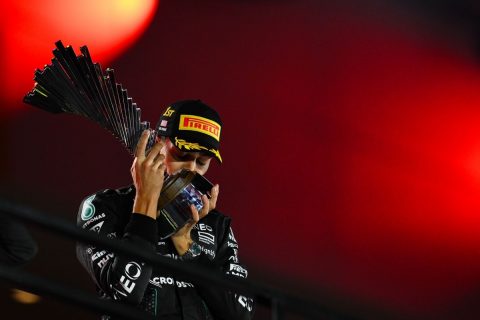The prospect of holding a trilogy of Formula 1 sprint races in the United States seems unlikely, as Las Vegas Grand Prix organisers have downplayed the possibility of introducing the sprint race format in the near future. The 2024 F1 season, with its six planned sprint races, already features two events on American soil, both won by reigning champion Max Verstappen in Miami and Austin. These victories have solidified his lead in the championship standings early on.
The Formula 1 calendar welcomed back the Las Vegas Grand Prix last year after a long hiatus since the 1982 Caesars Palace Grand Prix. Uniquely, it occurs on the iconic Las Vegas Strip, adding a distinctive glamour to the race. The upcoming 2024 event promises an extra treat for fans with the addition of a Ferrari Challenge support event. While sprint races are designed to promote overtaking and tighter contests, Las Vegas organisers have specific reasons for opting out.
A Unique Status and Logistical Challenges
The Las Vegas GP is the only race that Formula 1 organises directly, theoretically simplifying the potential transition to include a sprint race format. However, according to Emily Prazer, F1’s Chief Operating Officer, the complexity and logistical challenges of hosting a race on the Las Vegas Strip pose significant issues.
Prazer stated, “We’re quite comfortable letting Austin and Miami keep the sprint, because we’ve got so much more happening anyway and we’re in a really good place. Adding support races and hoping to continue doing that over the next few years takes precedence.” She added, “I don’t think people understand the complexity of this race versus other street races. We have around 46 track openings; people don’t realise the complexity of that versus any other grand prix.”
Track Preparation Nuances
Praising the organisational intricacies of the Las Vegas GP, Prazer mentioned, “We open and close the track several times; the notion of keeping roads closed for an extended period like in Singapore is simply not feasible here. Hence, the addition of a sprint would pose significant risks, including the ability to repair the track swiftly if needed.“
Given the 99 overtakes witnessed in the 2023 race—marking it as the most action-packed F1 race since 2016—the host city believes that they are offering a satisfactory adrenaline rush without needing a sprint race. Prazer noted, “The race in itself essentially feels like a sprint race, considering the speed involved, safety concerns, and competitive performance from last year.“
Future Prospects and Strategic Focus
Looking ahead, Las Vegas organisers appear content with retaining their event’s current format. With dynamic racing already in play and logistical challenges duly noted, the focus remains on expanding support races and enhancing fan experience without complicating the schedule further.
As Formula 1 continues to evolve, future strategies for the Las Vegas GP will likely maintain their unique approach, prioritising logistical feasibility and preserving the race’s distinctive appeal. Whether or not the sprint format might eventually join the party remains an open question, but for now, Las Vegas is set to keep its own unbeaten track.









